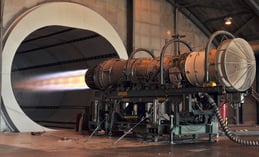
Thermal compensation is used to offset sensor performance when efficiency is impacted by fluctuations in temperature. Transducers used for precise testing and measurement applications, such as in engine test stands, undergo thermal compensation. Many transducers used in other critical applications may be thermally compensated. Thermally compensating sensors is crucial as temperature can have a significant impact on performance if not accounted for. This step in manufacturing counteracts the effects from changes in temperature that can influence the accuracy of a transducer's output. Thermal influence the accuracy of a transducer's output. Thermal compensation helps reduce the impact of temperature changes on sensitive components.
Benefits of Thermal Compensation
There are many benefits that come with thermally compensating a sensor. The most important benefits are improved accuracy and repeatability. These come into play when operating or storing a system with pressure sensors across a wide temperature operating range. Thermally compensating sensors ensures improved accuracy and simplified conditioning electronics while eliminating the need for calibration over elevated temperatures.



